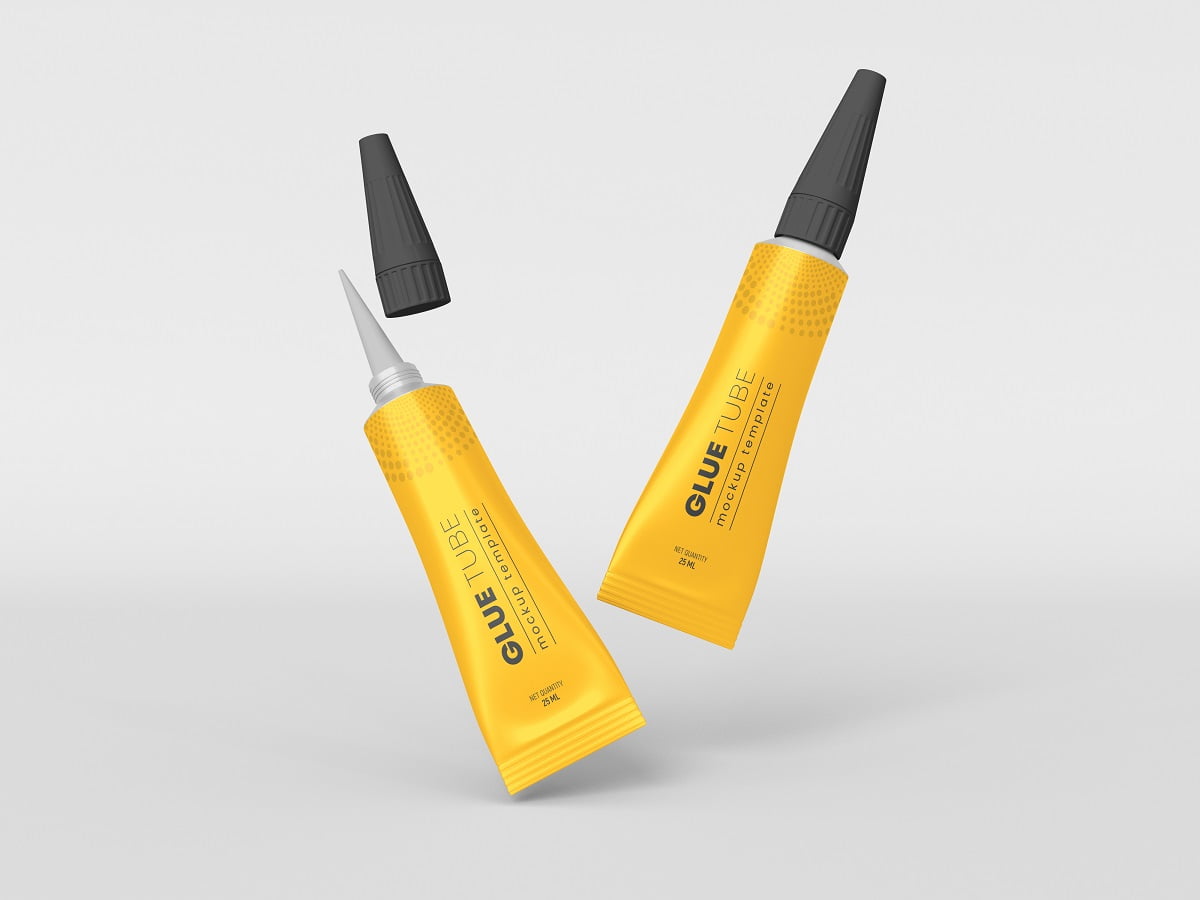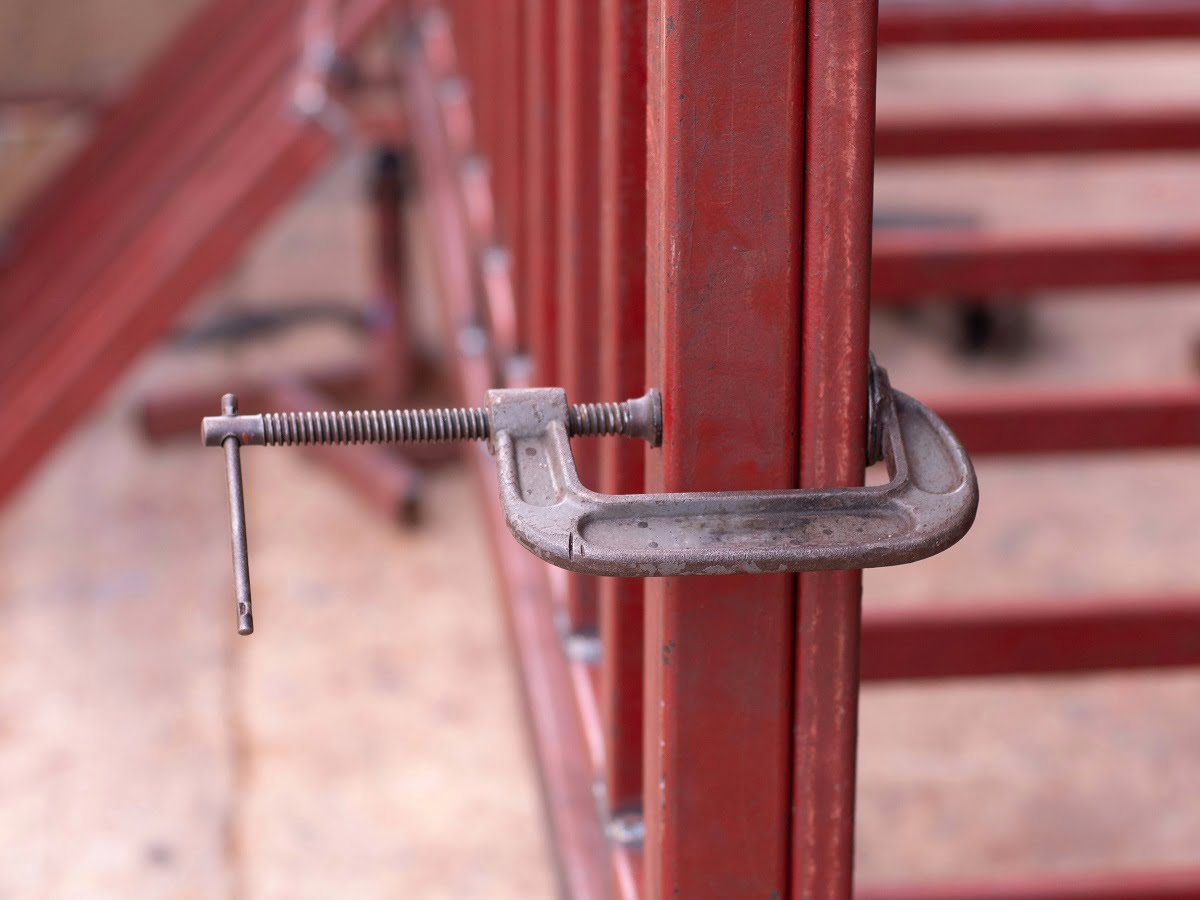Super glue is one of the most versatile methods of sticking different materials.

When it comes to gluing metal surfaces with super glue, there are two primary factors that make it possible - cohesion and adhesion. Cohesion is the interaction between the two glue molecules. A higher cohesion gives the glue more stability and structure after it is cured. On the other hand, adhesion is the interaction between the metal surface and the super glue molecule.
Most metals don’t easily adhere to glue, but super glue is different since it has the required adhesion to stick two different metals. However, as the first step, you should clean the surface properly since impurities can affect the metal adhesive.
In case you’re wondering, among all the top notch glues for metal to wood some of them are superglue. Some of these are also heat-resistant adhesives for metal. Apart from sticking metal-to-wood, metal-to-metal pieces, super glue can be used on wood also.
Now, without any further ado, let us dive into the next section to understand more about this.
How Does Superglue Work?

Super glue is a type of ethyl cyanoacrylate adhesive. It works quickly to join metal and other surfaces without taking much time to dry. However, it doesn’t fill gaps evenly, and therefore, we suggest using this glue to join mating surfaces that have a strong bond.
Cyanoacrylate super glue has seen a rise in popularity in the last few years, and it’s considered the best super glue for metal-to-metal bonding. This adhesion can work with almost all types of metals, including copper and brass as long as they are reactive.
Apart from being an excellent agent for gluing metal, it can be used for modeling and making miniatures for commercial or DIY projects.
Although this glue can bond to any metal instantly, it requires a long time to cure. In this regard, it is recommended to wait overnight for the best results. Nevertheless, you should be careful while working with this glue as it could cause a burning sensation on the skin.
Six Reasons Why Super Glue Is The Best Glue For Joining Metals
1. Instant Cure And No Wait Time
Unlike most metal glues, super glue requires the least time for curing itself. Ideally, it is recommended to apply this one-part adhesive in the presence of moisture, as it instantly cures to form a quick adhesion. Moreover, it is ideal for metal-to-metal applications that need an instant bond.
2. High Resistance To Harsh Chemicals And Solvents
While joining metals with glue, you should always consider the environment in which the metal will be kept. Some places are prone to chemical and solvent exposure; hence, choosing the right glue can be beneficial in keeping the two metals bonded for a long time.
On that note, super glue is highly resistant to chemicals and other harmful solvents, making it a suitable option to get the job done.
3. Works Great On Dissimilar Materials
Joining dissimilar materials with ordinary super glues can prove to be challenging since different objects react differently with glue. In addition, most products and home accessories are made from difficult-to-bond materials. For instance, plastic and metal don’t bond well with each other. And the same can be said for rubber and metal.
Nevertheless, cyanoacrylate adhesive can easily work with anything from car parts to table legs and provide a strong adhesion for dissimilar materials. Plus, the adhesive can be used for various miniature and small-scale projects that use a wide range of dissimilar materials.
4. Ideal For Mechanical Fasteners
When it comes to manufacturing and mass production, most manufacturers prefer to cut down the cost to maximize their profits. Over the years, many manufacturers have started using cyanoacrylate adhesive as an alternative to mechanical fasteners such as metal bolts, nuts, and rivets, as it’s beneficial in reducing the labor time by requiring the workers to spend less energy on the assembly.
Furthermore, the adhesive can be used to provide an aesthetic finish to the manufactured products as it acts as an invisible solution for mechanical fasteners.
5. Easy To Apply And Use
Since cyanoacrylate adhesive is a one-part adhesive, it is easy to apply and use as it requires no complicated setup or instructions to follow. This adhesive can simply be applied directly from the bottle, as it doesn’t require any nozzle or dispensing gun.
Most metal glues require the users to mix the resin with solvents to make them highly reactive. However, this doesn’t apply to super glue as it can bond metal (or any other surface) even if they are dissimilar in nature.
6. Cheap
Super glues are one the most commonly used metal bonding adhesives on the market, which makes them extremely affordable. Besides, it comes in different types and quantities, so you can choose the one most suitable for your project.
Ideally, we suggest going to a wholesaler in case you are working on a large-scale project since they offer special discounts, especially on bulk purchases.
How To Use Super Glue Or Metal Glue On Metals?
1. Preparation
Before using glue on your metal, we suggest choosing a well-ventilated area to perform your task. Make sure that the space has plenty of room to keep all your equipment, tools, and essential materials. In addition, you should protect your furniture with a paper towel or cloth so that they don’t get stained from the glue residue.
We also suggest wearing proper safety gear like latex or nitrile gloves to keep your skin safe from harmful chemicals.
2. Cleaning The Metal
Once you are done with the preparation, you should clean the surface of the metal and remove any form of impurities from the surface. Impurities such as grease, oil, dust, and fingerprints can hinder the adhesion of the glue. Use a damp cloth to clean the surface and let it dry before applying the glue.
Additionally, you can use fine-grit sandpaper to smoothen the surfaces for a stronger grip.
3. Apply The Glue And Join the Pieces
Lastly, you should apply the glue and join the pieces together once you have followed the above-mentioned steps. Let the super glue cure completely to allow the metals to stick to each other for a longer period.
Some professionals prefer to use claims to keep the metal pieces in place for the best results. Remember that even the slightest movement can hamper the curing process of the glue. Hence, we suggest letting it dry at least overnight before using the glued metal surfaces for any further projects.
Alternative Glues That Work With Metal
In general, most professionals who work with metal prefer welding to seal two metal surfaces together. But this method is expensive and time-consuming, especially if you are working on a small-scale project. Hence, we have done some research and found some alternatives that can stick metal to metal.
Moreover, some of these metal adhesives can be extremely effective in gluing metal to other materials and surfaces. In addition, glues are one of the most time-effective ways of joining two metals since it requires the least amount of time and energy.
Here is a list of super glues that are super effective in gluing metal as well as other materials if used correctly:
1. Polyurethane Glues
Polyurethane glues are known for being a very sticky adhesive that can bond any metal surface or other materials. This single part glue requires moisture to set itself on the metal. However, it becomes waterproof as soon as it is cured.
While bonding metal pieces, you should ensure keeping the pieces close to each other since it’s a poor gap filler.
Ideally, we would suggest clamping the two pieces of metal for 24 hours so that the glue can set evenly and fill the gaps. And we would recommend using this only if you are working on small-scale projects like repairing a broken toy or home accessories.
2. Epoxy Adhesives
When it comes to metal-to-metal bonds, epoxy adhesive and glues are worthy options since they’re highly durable. Besides, they are highly resistant to chemicals and heat, making them ideal for heavy industrial work. And epoxy resin glues can stick to a variety of surfaces such as plastics, stones, glass, metal and concrete surfaces, and many more
Generally, most professionals and experts would suggest mixing the adhesive with a hardener for the best results. Once the glue has cured completely, it establishes strong bonds with the metal pieces and prevents them from falling apart. However, you shouldn’t wait too long for it to cure as it could ruin the integrity of the clue.
3. Acrylic Glues
Unlike most metal glues, acrylic glues need to be applied to both the surfaces of the metals which you are planning to join. As soon as these two layers come in contact with each other, they start reacting to bond together.
You will also require some pressure to help them fully react. Plus, you can apply resin to one surface and a thin water initiator on the other for enhanced adhesion.
Does Superglue Stick Metal To Metal Frequently Asked Questions ?
Can You Remove Super Glue From Skin?
While working with super glue, it is quite common that it may accidentally spill on your skin, and this can cause inflammation and skin irritation. In this situation, we suggest using nail polish or acetone to remove the super glue from the skin. Alternatively, you can soak the area in warm water to loosen the adhesive.
How Do You Extend The Shelf Life Of Super Glue?
Generally, super glue should be stored in a cold place such as a fridge, as it helps to prolong the shelf life of the adhesive. In addition, you can store your super glue in a cool and dry place, like the kitchen cabinet or under the sink.

Does Superglue Stick Metal To Metal Conclusion
When it comes to bonding metals, super glue can work like magic and save both time and energy.
On that note, let us recap a few important points to remember while gluing your metal. Firstly, metals can be joined using glue as long as you know how the surface reacts to the adhesion. And superglue works well with all types of metal.
Similarly, cyanoacrylate is widely used for its unique properties and benefits. Most notably, it is ideal for joining dissimilar surfaces such as rubber and plastics that usually don’t bond well with metal.
If this article answered your question on whether superglue sticks to metal or not, do cast a glance on our next article coming up on acrylic face paint, you'll find plenty of interesting information.
With that, it's a wrap. See you next time!
